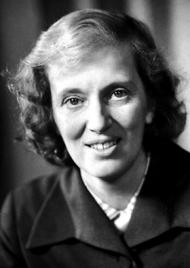On 31 May 1961, the country became a republic following a referendum in which white voters narrowly voted in favour thereof (the British-dominated Natal province rallied against the issue). Queen Elizabeth II was stripped of the title Queen of South Africa, and the last Governor-General, namely Charles Robberts Swart, became State President. As a concession to the Westminster system, the presidency remained parliamentary appointed and virtually powerless until Pieter Botha's Constitution Act of 1983, which (intact in these regards) eliminated the office of Prime Minister and instated a near-unique "strong presidency" responsible to parliament. Pressured by other Commonwealth of Nations countries, South Africa left the organization and was readmitted only in the 1990s.
Despite opposition both within and outside the country, the government legislated for a continuation of apartheid. The government harshly oppressed resistance movements, and violence became widespread, with anti-apartheid activists using strikes, marches, protests, and sabotage by bombing and other means. The African National Congress (ANC) was a major resistance movement. Apartheid became increasingly controversial, and some Western nations and institutions began to boycott doing business with South Africa because of its racial policies and oppression of civil rights. International sanctions, divestment of holdings by investors accompanied growing unrest and oppression within South Africa.
In the late 1970s, South Africa began a programme of nuclear weapons development. In the following decade, it produced six deliverable nuclear weapons.
The Mahlabatini Declaration of Faith, signed by Mangosuthu Buthelezi and Harry Schwarz in 1974, enshrined the principles of peaceful transition of power and equality for all, the first of such agreements by acknowledged black and white political leaders in South Africa. Ultimately, F. W. de Klerk negotiated with Nelson Mandela in 1993 for a transition of policies and government.
In 1990 the National Party government took the first step towards dismantling discrimination when it lifted the ban on the African National Congress and other political organizations. It released Nelson Mandela from prison after twenty-seven years' serving a sentence for sabotage. A negotiation process followed. The government repealed apartheid legislation. South Africa destroyed its nuclear arsenal and acceded to the Nuclear Non-Proliferation Treaty. South Africa held its first universal elections in 1994, which the ANC won by an overwhelming majority. It has been in power ever since. The country rejoined the Commonwealth of Nations.
In post-apartheid South Africa, unemployment has been extremely high as the country has struggled with many changes. While many blacks have risen to middle or upper classes, the overall unemployment rate of blacks worsened between 1994 and 2003. Poverty among whites, previously rare, increased. In addition, the current government has struggled to achieve the monetary and fiscal discipline to ensure both redistribution of wealth and economic growth. Since the ANC-led government took power, the United Nations Human Development Index of South Africa has fallen, while it was steadily rising until the mid-1990s. Some may be attributed to the HIV/AIDS pandemic, and the failure of the government to take steps to address it in the early years.
In May 2008, riots left over sixty people dead. The Centre on Housing Rights and Evictions estimates over 100,000 people were driven from their homes. Migrants and refugees seeking asylum were the targets, but a third of the victims were South African citizens. In a 2006 survey, the South African Migration Project concluded that South Africans are more opposed to immigration than anywhere else in the world. The United Nations High Commissioner for Refugees in 2008 reported over 200,000 refugees applied for asylum in South Africa, almost four times as many as the year before. These people were mainly from Zimbabwe, though many also come from Burundi, Democratic Republic of the Congo, Rwanda, Eritrea, Ethiopia and Somalia. Competition over jobs, business opportunities, public services and housing has led to tension between refugees and host communities. While xenophobia is still a problem, recent violence has not been as widespread as initially feared.

